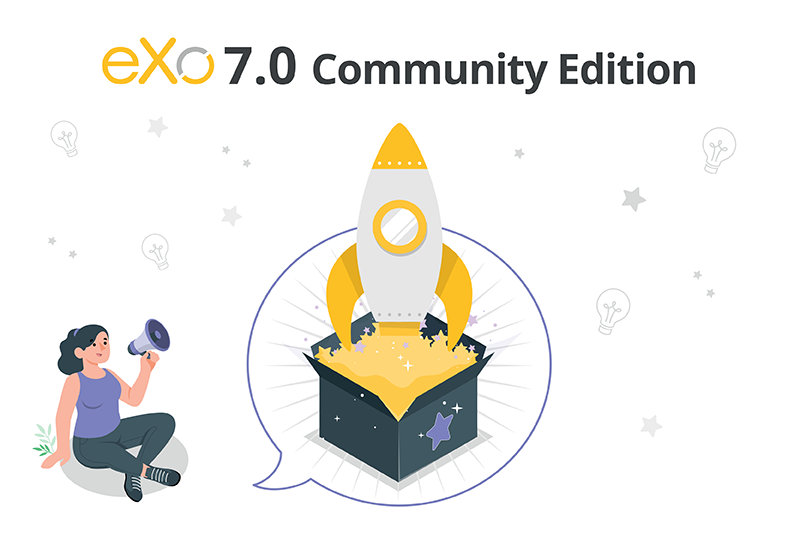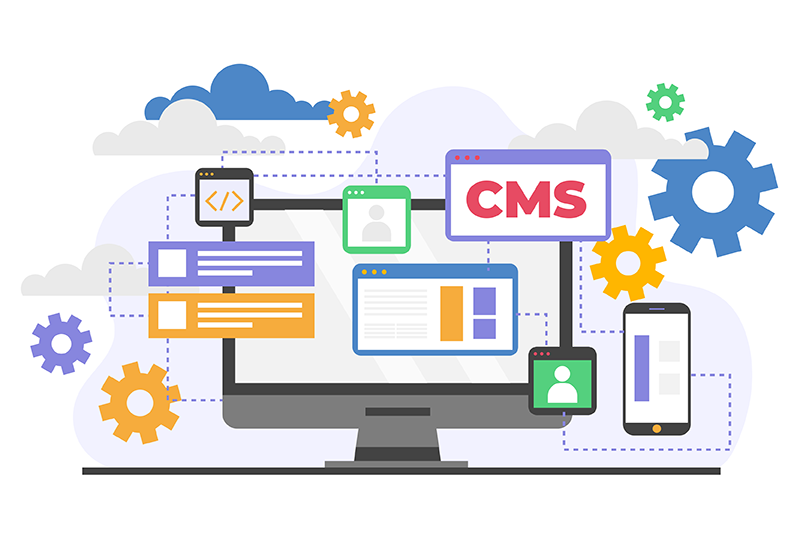- Fares Laroui
- April 23, 2020
eXo Platform FAQ: All you need to know for a better remote work experience
Remote work has recently become the new normal due to the global spread of the Coronavirus. This has seen many businesses surfing the web for tools and best practices to effectively support the transition from office-based to remote working.
We have had our fair share of questions over the last month from both our clients and community members. These questions were received by our different teams: pre-sales, customer success and support teams. They cover a variety of topics ranging from security and integrations to internal communications and real time collaboration.
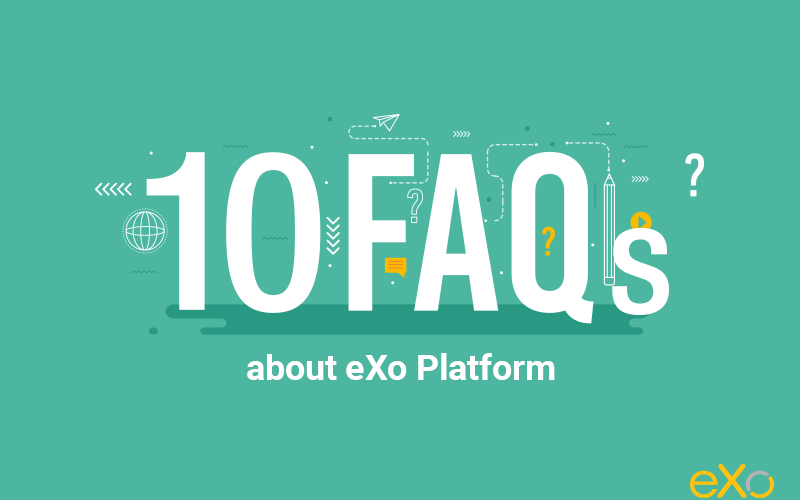
Content
1. Does eXo Platform provide an implementation of Single Sign-On?
Yes. eXo Platform provides an implementation of Single Sign-On (SSO) as an integration and aggregation platform.
There are many different Identity Management solutions available. In most cases, each SSO framework provides a unique way to plug into a Java EE application like eXo Platform.
eXo supports SSO providers including popular SAML v2.0, CAS, and SPNEGO (Over Kerberos for Microsoft Windows). See the SSO section of this document for the most up-to-date version listing: https://www.exoplatform.com/supported-environments
As for accomodating other SSO solutions that are not officially supported, eXo can work additional professional service arrangements with its clients to address custom integration scenarios.
2. Does eXo Platform integrate with third party applications?
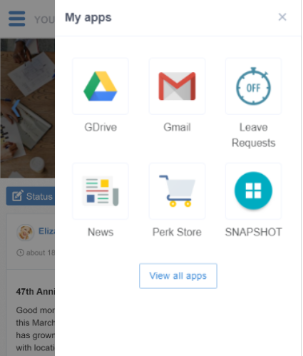
Beyond that, eXo can also accomodate deeper integrations. In fact, one of eXo Platform’s strengths is its flexible and open source nature. Its many extension points and APIs allow you to interact with the platform’s data, either to connect your business apps or to implement custom behaviour, or for entirely new applications.
Developers can write their own integrations with third party apps or even write their own applications to run inside the platform, such as JSR-286 portlets, using their favorite web framework (including Vue.js, JSF, Spring, Ext-JS, etc.).
The platform’s user interface is built on a mobile-ready, responsive and customizable framework powered by Vuetify.js, JQuery, and LESS.
An exclusive extension mechanism allows developers to override the platform’s built-in web resources and Java services so they can customize them without pain. Developers can build their integrations or customizations in the form of plug-n-play extensions (deployable as eXo add-ons) without having to worry about modifying or breaking the core of the platform and facing issues with future upgrades as a result of heavy customization. Thus, we are able to ensure stability without sacrificing flexibility.
A catalog of many free open source add-ons is available here: https://github.com/exo-addons
Several of these add-ons offer integrations to popular 3rd party apps (e.g. Outlook, Office365, Skype, Google Drive, Salesforce, etc.). Some of these add-ons are supported officially by eXo, while others are community-supported.
3. Can I import my user base to eXo Platform?
Yes. Users and user groups can be bulk-imported from:
- simply a CSV file (we provide you with the template),
- integration with an LDAP directory (e.g Active Directory). This integration is supported by eXo. See this documentation for more details on it.
Several AD integrations can exist simultaneously and other non-AD user accounts/groups can also be created in eXo Platform and coexist with the AD-linked accounts/groups.
Administrators can access and manage all user accounts and groups inside eXo Platform (whether AD-linked or not) through an administrative user and group management interface.
4. Is it possible to manage permissions within eXo Platform (e.g. show some pages to guests and the rest to authorized staff)?
Yes. Fine grained role-based permissions can managed at all levels: at the level of a page, at the level of a container block on a page, at the level of apps inside a container, and at the level of individual content (articles, files, wiki pages, portal pages, discussions, etc…).
This allows to adequately target the user experience by showing the user all the tools and information he/she needs based on his/her groups (which can represent roles, departments, locations, etc.).
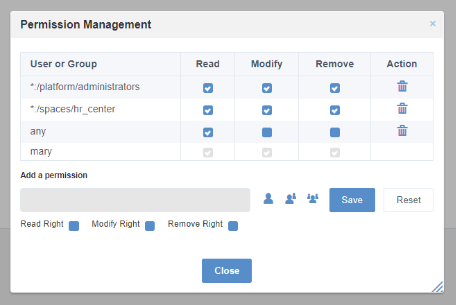
5. How to set up notifications?
eXo Platform users are provided with a notification system that allows them to stay up-to-date with the latest activities within the platform. Three notification types are available: on-site, mobile push and email.
You have the ability to choose the most convenient way to be notified by changing your notification settings. To do that, select “My notifications” from the drop-down menu; you will then be redirected to the notification settings page.
At the top of the page, you will find the three notification types. Click on each type to enable or disable notifications.
You may also personalize your notifications based on activities and events. For example, you may choose to be notified via on-site and mobile push notifications for activities like mentions or comments and via email notifications for activities like posts on a space.
Notification settings are documented here.
6. Can I customize my eXo Platform instance?
Yes. Administrators can customize the look and feel, layout and content of their eXo Platform site.
They can:
- Change the branding of the site (site logo design, colors, styles, …) to reflect their corporate identity.
- Switch apps/features on or off based on needs.
- Personalize the layout of the pages (such as changing the layout and content of the homepage in a way that best suits the needs of their organization and users).
- Set up and personalize spaces, which can act as corporate, department, community, team or project sites, each with its own landing page, content, etc.
7. How to communicate internally with eXo Platform?
8. Is it possible to measure engagement within eXo Platform?
9. Is it possible to view and edit documents directly within eXo Platform? Does it support simultaneous real-time editing?
Yes. eXo Platform users can now co-edit documents directly within the platform. This was made possible by our partnership with OnlyOffice and the integration of its document editor inside eXo Platform.
This optional OnlyOffice add-on for eXo Platform comes with a number of benefits. You can:
- Edit Microsoft Word, Excel and PowerPoint documents in real time inside eXo. Several people can edit the same document simultaneously.
- Track changes and compare different versions directly inside eXo Platform.
- Highlight sections of documents and write comments and suggestions/reviews contextually.
- Just like eXo Platform, OnlyOffice allows on-premise deployment! This means that organizations who prefer to keep all data in their own servers (and avoid going through proprietary vendor cloud) can now have this type of feature. This is why our Government clients like this option.
10. What about editing documents Office365 or Google Drive?
11. How to setup and organize meetings in eXo Platform?
eXo Platform’s built-in chat application allows users to communicate in real-time and plan, organize and hold meetings.
The functionalities within the chat application include:
- The possibility to start a meeting: Teams can start meetings on the chat application with the click of a button. After the start of the meeting, meeting notes will automatically be saved as wiki pages or sent directly to the user’s e-mail address.
- Add events: Within the chat application. Users can add and schedule future events.
- Assign tasks: Users are provided with the possibility to assign tasks.
- Share links and upload files: Files and links can be shared in the chat application.
We hope these answers will help you gather a thorough understanding of the eXo Platform solution and its capabilities. If you have any questions, please feel free to contact us here or join our community and access the forum.
company intranet
- Tags: eXo, Tips & Tricks
Related posts
- All
- eXo
- Digital workplace
- Employee engagement
- Open source
- Future of work
- Internal communication
- Collaboration
- News
- intranet
- workplace
- Knowledge management
- Employee experience
- Employee productivity
- onboarding
- Employee recognition
- Change management
- Cartoon
- Digital transformation
- Infographic
- Remote work
- Industry trends
- Product News
- Thought leadership
- Tips & Tricks
- Tutorial
- Uncategorized
Leave a Reply
( Your e-mail address will not be published)
